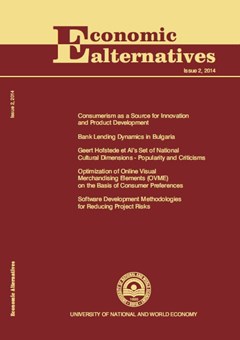Analysis of the Renewable Energy Concept and Its Future in Bulgaria
Author: Anton Yordanov
Abstract
The organization and efficiency of the energy sector is a factor of crucial significance in a country’s economy. Over the coming years, Bulgaria’s major priorities in the energy sector will be connected with the preservation of a safe, stable, and reliable energy system, improving of the energy mix by giving preference to sustainable, environmentally friendly, and low-emission energy. Our main national objective is to ensure that the share of energy, produced from renewable energy sources (RES) reaches 16% of the total energy consumption and 10% of the total consumption in the transport sector by 2020. The RES concept provides an opportunity of switching to a sustainable economy. However, this transition period may last quite long, and it is associated with a number of impacts on the entire society, emerging parallel to the development of the RES industry. The present study addresses the potential, advantages, drawbacks, tasks, trends, and main aspects of the RES concept development, with the purpose of using it as a platform for projecting the future of the industry in Bulgaria.

